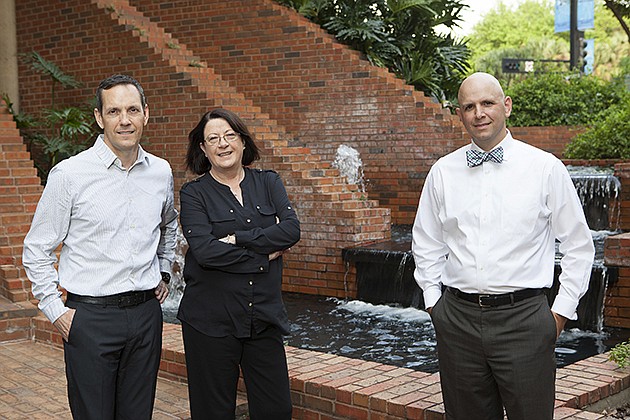- April 4, 2025
-
-
Loading

Loading

Sony Pictures is still wincing from the massive hack that exposed hundreds of private documents, revealing not only accounting numbers, but embarrassing correspondence about some of Hollywood biggest stars.
Yet, as far as cyberattacks go, some experts say Sony got off easy -- at least on the financial side. A far different breach of customer credit card information at Target Corp. in 2013 cost the retail chain $145 million, and a lot of unhappy customers.
Losses from cyberattacks worldwide are more than a half-trillion dollars, and companies both big and small are looking for help to keep their data secure.
It has kept the phones ringing at Sunera LLC, a Tampa technology company that has grown from just five former KPMG employees in a small office 10 years ago, to a national leader in cybersecurity with more than 250 employees.
“As a business owner, or even as a business executive, you absolutely have to be diligent to protect every aspect of your business,” says Andrew Cannata, one of the five Sunera founders. “There are some who never think they are a target because they might not have a lot of customer data, or they're in a very small niche. But if you're out there, and people can learn about you, you'll always be a target.”
When Sunera formed in 2005, company network breaches were still typically blamed on young miscreants looking for ways to entertain themselves, or prove a point to their peers.
Today, however, hacks are far more sophisticated, with end games that include selling vital information to the highest black market bidder. It's an enterprise flush with cash, almost always at the expense of the company the hackers target.
“It used to be college students or young tech-savvy kids who would find ways to hack into companies,” says Christie Verscharen, another Sunera founder. “But now, it's more and more tied to organized criminal operations, and their intentions are far worse than being mischievous.”
Repairing network vulnerabilities can be a full-time task, and typically far beyond the knowledge base of a company's in-house tech desk. That has overwhelmed third party companies like Sunera, which works with companies to prevent attacks and also can be called in to clean up a mess after a breach.
Because of that, Sunera struggles to find all the help it needs. In fact, more than 300,000 cybersecurity jobs remain unfulfilled, says Sunera Managing Director Peter Armstrong.
While that may have driven up salaries for such employees beyond $100,000, it's pushing cybersecurity companies to the limits. Before moving to a larger work space on a higher floor at Tampa's Fifth Third Center, Sunera didn't even have a lobby to receive guests, for many of its 100 Florida employees were packed as tightly as possible in the smaller space.
All of them will have to make room for at least 40 more people over the next three years.
“There's never enough” people, Armstrong says. “You're trying to hire the people you can afford, and always trying to balance that buy-sell side when it comes to employees.”
And those growing pains will continue for some time to come as the global security market grows from a $67 billion business in 2013, to one that is projected to double before 2020.
By the Numbers
$575 billion
The high estimate of annual global losses to cybercrime, says McAfee
1.5 million
Monitored cyberattacks in the United States in 2013, says IBM
262,813
Reports the FBI's Internet Crime Complaint Center received in 2013
$115.4 billion
What the global security market is expected to be worth by 2019, says Markets and Markets
Source: WildPackets.com
Follow Michael Hinman on Twitter @BizTampaBay